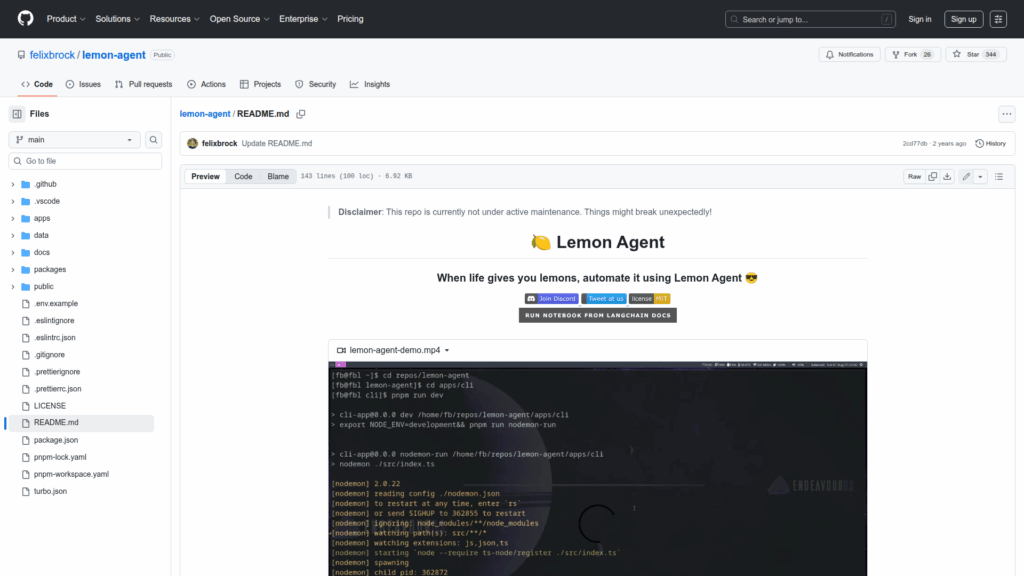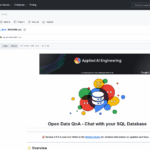lemon-agent
Basic Information
Lemon Agent is a standalone supervised Plan-and-Solve agent designed to enable reliable workflow automation by allowing large language models to perform read and write operations against external services. It separates planning and execution by running a Planner agent to design solutions and a Solver agent to carry out workflow steps using tool integrations. The project provides a configurable workflow format (data/workflow.json) where steps and pre-execution conditions like userPermissionRequired can be declared. It targets developers who want to build UI or CLI frontends, or integrate the agent into frameworks such as LangChain. The repo includes examples, a demo, an analytics visualization for tool usage, and supports running locally with Node.js, pnpm and environment variables for OpenAI and GitHub tokens. The code is MIT licensed and the README notes the project is not under active maintenance.








